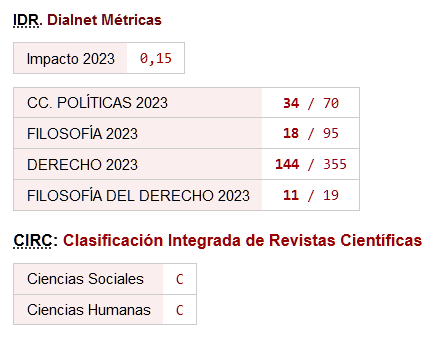Submissions
Submission Preparation Checklist
As part of the submission process, authors are required to check off their submission's compliance with all of the following items, and submissions may be returned to authors that do not adhere to these guidelines.- Please, read all these submission guidelines or your proposal will be automatically rejected.
- For any other questions or comments, write to us at rlsordia@upo.es
- Do you need help uploading the document? Problems with the platform? Review the tutorials that we indicate in the guidelines. If you still have any questions or problems, please contact smarin@upo.es
- The text complies with the bibliographic and style requirements indicated in the Guidelines for Authors. In particular, be careful not to use capital letters in the title of your proposal or in the first and last names.
- The text complies with the bibliographic and style requirements indicated in the Guidelines for authors.
- It is mandatory to be identified with an ORCID url.
- Do not use upper or lower case only for your personal details and title/subtitle. Use the correct spelling and spelling unless it is intentional.
Copyright Notice
Free open access is guaranteed for anyone to all the content of every published issue of the journal, without costs, being allowed to print and send every article, with the only condition of stating its source and authorship.
The journal: a) does not demand authors to pay any fee for the submission and reception of their articles; b) guarantees that the authors will retain copyright without restrictions; c) allows the authors to preserve all the publishing rights without any restrictions.
International Journal of Political Thought releases its content under a "Attribution-NonCommercial-NoDerivatives 4.0 International (CC BY-NC-ND 4.0)" Creative Commons License that can be found in this url:https://creativecommons.org/licenses/by-nc-nd/4.0/legalcode
International Journal of Political Though is an original work by Laboratorio de Ideas y Prácticas Políticas from Pablo de Olavide University. All included articles are the original work of their respective authors. This journal is provided freely and without any cost to every member of the scientific community, operating under an Attribution-NonCommercial-NoDerivatives 4.0 International Creative Commons License.
- You can access every issue of the journal and its content through the journal’s official website. You can freely share and distribute this content, and use it for any work, thesis or article, as long as you specifically cite the source and original author, the issue of the journal where the article belongs, and credit the Laboratorio de Ideas y Prácticas Políticas as owner of the journal. If you wish to translate or compile the articles here provided, please contact us through pensamientopoliticorevista gmail.com
- You cannot claim ownership over this content, modify it nor employ it for any commercial or lucrative ends. You cannot transform in any way the content provided by the journal and its website.
For more information, you can access the full license here:https://creativecommons.org/licenses/by-nc-nd/4.0/legalcode
Privacy Statement
The data controller of the personal data provided for the journals to which Revistas UPO gives access is the Revista Internacional de Pensamiento Político. To consult additional and detailed information on data protection, please contact the journal Revista Internacional de Pensamiento Político at the address indicated in "about/contact".
You are also informed that the Universidad Pablo de Olavide acts as Data Processor for each of the files owned by the different journals. Therefore, the Universidad Pablo de Olavide, facilitates the exercise of their rights of access, rectification, deletion, limitation of processing, data portability, opposition and not to be subject to automated individual decisions, including profiling by contacting the headquarters of the Universidad Pablo de Olavide, located at Ctra. de Utrera, km. 1 41013, Seville (ES), or requesting it by email to the address deleg.protecciondedatos@upo.es, accompanied by proof of identity.










 ISSN: 1885-589X
ISSN: 1885-589X  Universidad Pablo de Olavide
Universidad Pablo de Olavide